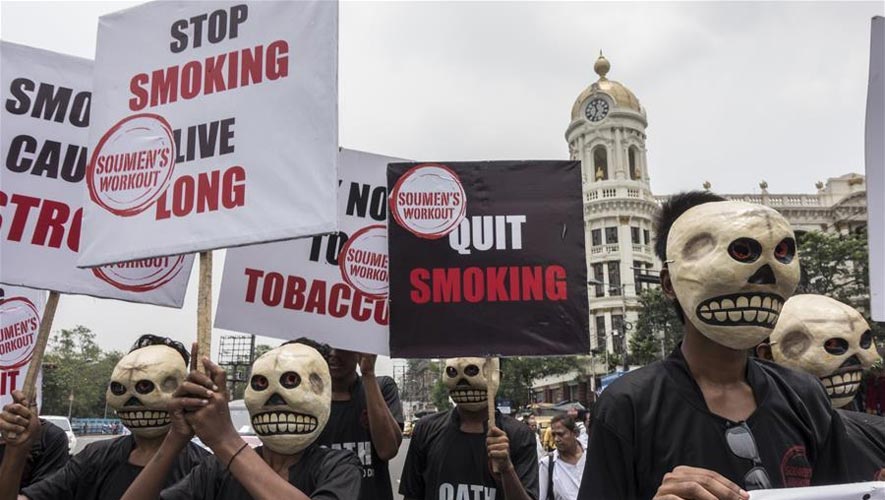One of society’s most acceptable addictive substances, tobacco, is deadly. This is no secret, but the damage tobacco does to the economy is less obvious. Earlier this month, a joint study conducted by the United Nations Development Programme (UNDP), the Framework Convention on Tobacco Control (FCTC) and the World Health Organisation (WHO) unearthed disturbing details about the true impact of Cambodia’s love affair with tobacco.
For the latest Cambodian Business news, visit Khmer Times Business
The human cost is grim, by any standards as the study finds tobacco kills 15,000 Cambodians each year – that’s 290 deaths a week – with 33 percent of those among the lowest income group in the country. If human history has taught us anything it’s that casualties alone rarely usher in change, the real action starts when the bottom line takes a hit.
Perhaps this is why this study was entitled “Investment Case for Tobacco Control in Cambodia.” The research digs deeper than simply analysing the loss of life related to tobacco, but established that tobacco is also responsible for a $662 million annual cost to the country. This, the study finds, is broken down into two key areas. The direct costs are related to healthcare expenditures, totalling $65.8 million, whereas 90 percent of the cost stems from lost productivity that the study valued at $588.6 million. This, it calculated, was due to premature mortality, absence from work due to sickness and reduced capacity on account of smoke breaks.
In total, it cost Cambodia three percent of its GDP in 2017, the numbers are too stark to ignore. There are currently 20 laws, sub-decrees and regulations on tobacco control in the Kingdom, but technical workers from the UNDP, WHO and FCTC established five measures that seek to build on that progress and take steps towards a healthier, more prosperous Cambodia.
The recommendations essentially aim to strengthen existing laws, either in terms of scope or in terms of enforcement. The study suggests that Cambodia strengthen its enforcement of the ban on smoking in public places, increase coverage of media campaigns to educate people on the full gamut of risks associated with tobacco and further crack down on tobacco companies advertising and promoting their brand. It also went as far to recommend that Cambodia joins numerous countries in enforcing a plain packaging deal that would see all brands of tobacco sold in a non-descript, generic pack devoid of branding.
The most crucial step that the study suggests is an increase in taxation. This, it contends, would be the single most effective means of preventing losses – both in terms of human lives and economic productivity. Currently Cambodia’s taxation of tobacco is among the lowest in the region. For every single Cambodian riel invested in the implementation of higher taxes on tobacco products, the government could expect to see a return on investment of 882 riel, the study states.
Rodrigo Santos Feijo, technical officer, development assistance with the WHO FCTC Secretariat, noted that while Cambodia has performed well in implementing smoke-free areas and banning advertisements for tobacco, “When it comes to taxation and in terms of the affordability of tobacco products and cigarettes, Cambodia has the fourth most affordable cigarettes in the world.”




